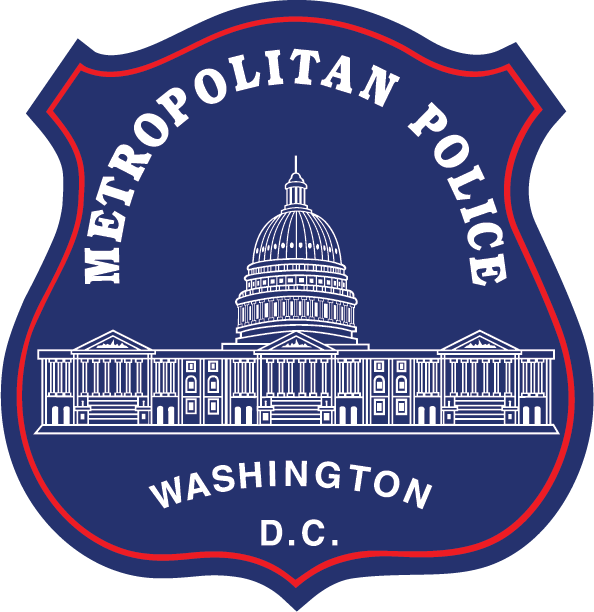Please note that the online community groups should NOT BE USED for reporting crimes in progress or any emergency.
If you witness a crime in progress or are experiencing an emergency, call 9-1-1 immediately!
The MPD's online community groups were originally created in 2004, for members of the community to have an additional online resource available to share public safety information, in an effort to help reduce crime, the fear of crime and communicate with police officials quickly. Since then, thousands of members of the community have joined the various sites. The MPD currently namanges a total of nine online groups:
- seven police district groups -- one group for each of the seven police districts in Washington, DC (find your police district)
- one group focused on outreach to community members of the Asian, Latino, Deaf & Hard of Hearing, Gay, Lesbian, Bisexual, and Transgendered Population and is managed by the Special Liaison Branch of MPD
- one invitation-only group created specificly for outreach to families of homicide victims and is managed by MPD’s Victims Services Unit
Purpose
The purpose of the MPD online community groups is to allow police officials an online venue for collecting and sharing information with members of their individual police districts, 7 days a week, 24 hours a day.
The discussion groups aid in:
- increasing awareness,
- reducing crime and the fear of crime, and
- improving community relations.
The method of communication allows residents and officials to communicate back and forth around the clock, which eliminated concerns from previous years of not knowing which tour of duty members could call their local officials to report concerns. Police officials and watch commanders are able to forward alerts for public safety; information about community meetings; changes to staff; and details about upcoming events.
Who Can Join?
Anyone is welcome to join and maintain membership with the MPD online groups, as long as the member’s participation is in compliance with the overall goals of the group (see “Purpose” listed below). People who join a particular group are expected to be stakeholders of that specific district.
How to Join?
Any person may view any of the public MPD Google Groups listed below by clicking on the appropriate link below. If you wish to post a question or message, or if you wish to recieve emails of these postings, you will need to already have or create a new Google account. A Google account may be created using any email address; a Gmail address is not necessary.
The number one reason users are denied membership is because the user is found to be a spammer that is not affiliated with the District of Columbia. Other reasons include past history of spamming or abusing the sites, a history of promoting products or services that are not related to public safety or a user name or email address that is offensive or misleading (e.g., policechief @gmail.com)
Restrictions
Members are restricted from posting messages to the site that:
- contain information related to any active or ongoing investigation. This includes any eyewitness accounts. If users wishes to share tips with the department, they should call (202) 727-9099.
- consist of illegal spamming;
- promote the sale of services and products, particularly those that are not designed to improve upon public safety;
- are combative and threatening in nature;
- are confidential and will infringe upon a person’s right to privacy (particularly victims);
- provide information that could jeopardize a criminal investigation;
- insult members of the community or police officials (e.g., profanity, name-calling, discriminatory, inflammatory, gossip, hearsay, statements known by MPD staff to be nonfactual, etc.)
- are deemed untrue or unreasonable and irrational by email discussion group moderators (i.e., messages posted out of anger or revenge, as opposed to out of concern for public safety)
- have been repeatedly addressed by police officials, but are not to the liking of the member (i.e., if a police official provides an official explanation to a request, a member will not be allowed to continue to force the issue.)
- override or attempt to override the authority of police officials;
- vocalize a political or religious opinion or promote a political or religious agenda.
- are not public-safety related.
- promote commercial or personal web sites or blogs.
- are petitioning others to target or take action against a specific person (unless this involves an activity that requires community statements, like court watch projects).
- include video or photographs of people and/or property that are the subject of criminal activity. Those kinds of messages should be directed to the district’s commander.
- contain inquiries from the news media/press.
MPD also reserves the rights to determine other restrictions, based on action that can cause membership to decline if allowed to continue, like back and forth banter or debates that are subject to cause each member of the group to receive 10 or messages in a single day on a heated topic, where most members believe that the exchange of words fall under the “agree to disagree” category.
Other Information About MPD's Online Community Groups
- MPD's online community groups are managed through collaboration between the Office of Communications and various other units and bureaus across the Metropolitan Police Department.
- Moderators include trained staff from the Office of Community Outreach
- More information about MPD's Online Community Groups can be found at mpdc.dc.gov/emailgroups.
Community Outreach Coordinators
Learn more about the community outreach coordinators and get contact information for your police district's coordinator.
